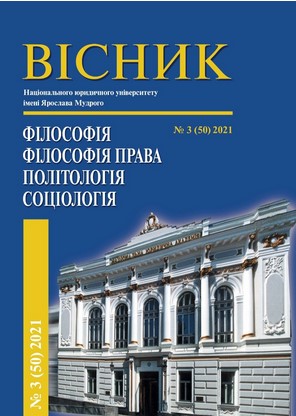ПОСТСЕКУЛЯРНІ ТЕНДЕНЦІЇ У ДУХОВНОМУ ЖИТТІ СУЧАСНИХ СОЦІУМІВ І ПЕРСПЕКТИВИ ОНОВЛЕННЯ ВИХОВНИХ ПРАКТИК ОСВІТИ
POST-SECULAR TRENDS IN THE SPIRITUAL LIFE OF MODERN SOCIETIES AND PROSPECTS OF EDUCATION
Author(s): Georgy Ivanovich FininSubject(s): Politics and religion, State/Government and Education, Sociology of Education, Sociology of Religion, Pedagogy
Published by: Національний юридичний університет імені Ярослава Мудрого
Keywords: religion; education modernization; patriotic education; «civil religion»; educational system; the spiritual life;
Summary/Abstract: The subject of the article shows post-secular trends in the spiritual life of modern societies and prospects of education modernization. It also offers recommendations about the introduction of the positive experience of leading countries on the issues of cooperation between religious education and upbringing. To begin with, in a post-secular society where religious meanings begin to play a great role in guiding the spiritual life of society, education needs new impulses. In recent years in education gained some experience of usage and inter-confessional communication during preparation of modern specialists. Firstly, components of the moral and esthetic teaching of different confession have to find the full display in studying of the subjects of a social and humanitarian orientation. Especially it concerns Christian ethics which defines the direction to educational practice of education. It can be promoted by obligatory or facultative teaching religious disciplines in educational institutions, but teaching religious courses must be non-confession. Secondly, it’s necessary to refer to the experience of leading countries regarding religious education component including its implications on the civil or patriotic education and research opportunities to approach the main priorities of European education using educational standards and curriculum of future professionals. One should, however, not forget that, nowadays philosophical analysis of religious component of education and its impact on the education process is very important. Religion and culture for thousands of years served not only faith functions, they considerably influenced development of science, education and high spiritual culture. It formed the fundamental basis of educational doctrine, gained considerable potential in the education of the young generation. Furthermore, one should not forget that social changes of recent decades associated with the development of Ukraine as an independent state. The current nature of church-state relations and the free activity of religious organizations gained new development opportunities.
Journal: Вісник НЮУ імені Ярослава Мудрого. Серія: Філософія, філософія права, політологія, соціологія
- Issue Year: 32/2017
- Issue No: 1
- Page Range: 45-52
- Page Count: 8
- Language: Ukrainian

